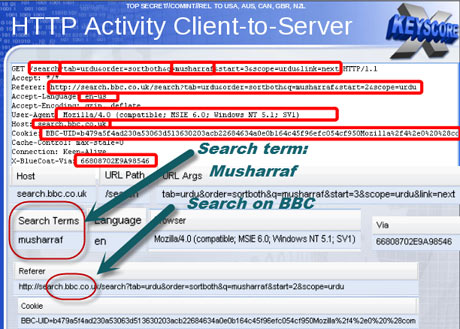

This indicates that compliance will be achieved by after-the-fact auditing, not by preventing the search.Īs The Intercept notes, prior to Snowden having pulled back the curtain on surveillance, encryption wasn't as common as it's become, due in no small part to his revelations.

The document discusses whether auditors will be happy or unhappy. and that there's nothing built into XKeyscore that would serve as a technical roadblock to illegal searches taking place in the first place: But it doesn’t come from a court, it comes from the executive. an attempt by the intelligence community to comply with the Fourth Amendment. person minimization" - or, apparently, the British Human Rights Act (HRA).īut Kurt Opsahl, the Electronic Frontier Foundation’s (EFF's) general counsel, believes that's little more than a nod to CYA: Training documents for the system put the burden on the "user/auditor" to comply with rules such as USSID-18 - the US Signals Intelligence Directive 18 that governs "U.S. The NSA has claimed that it doesn't target US citizens' communications without a warrant, but it's also acknowledged that it "incidentally" collects and reads some communications without a warrant, minimizing the information that's retained or shared. Other NSA documents have indicated that tens of billions of records are stored in its database.Īs far as how the search engine prevents analysts from attempting to make overly broad searches that would break laws such as the US's Fourth Amendment guarantee against unreasonable search and seizure, the answer is short: it doesn't appear to. One of the documents shows that Foreign Intelligence Surveillance Act (FISA) courts have authorized "full-take" collection of traffic from at least some US web forums.Īn NSA briefing says it's "a fully distributed processing and query system that runs on machines around the world" that can run on multiple computers, giving it "the ability to scale in both processing power and storage." The servers reportedly store "full-take data" at the collection sites - meaning that they've captured all of the traffic collected. The system relies on more than 700 servers that, as of 2008, were located in 150 field sites in the US, Mexico, Brazil, UK, Spain, Russia, Nigeria, Somalia, Pakistan, Japan, Australia, and many other countries. servers collect all of this data for up to five days, and store the metadata of this traffic for up to 45 days. Speaking of retention, the newly released documents show how long the XKeyscore servers have been holding this data, at least as of 2009.
#Xkeyscore search data how to
The "justification" for the search, as entered in the easy-to-navigate search form: "german ct targets in pak visiting web forums."Īnother slide shows how to search for CNEs, encouraging users to "go way back," since "CNE Data doesn't age off". The slide depicts the search "germansinpakistn", showing an analyst querying XKeyscore for all individuals in Pakistan visiting specific German language message boards.

#Xkeyscore search data full
One of the slides in the new set of XKeyscore screen captures and other documents (the full list is at the end of The Intercept's report) shows the incredible breadth of surveillance that can be done, showing a sample query of people based on their location, nationality and browsing histories.

What's more, XKeyscore users - which include not only NSA agents but also their counterparts in partnering countries that include Canada, New Zealand and the UK - can get the keys to every wireless network through the gathering of router information.
#Xkeyscore search data password
That includes pictures, documents, voice calls, webcam photos, web searches, advertising analytics traffic, social media traffic, botnet traffic, logged keystrokes, computer network exploitation (CNE) targeting, intercepted username and password pairs, file uploads to online services, VOIP streams taken from Skype sessions, and more. Rather, it's more like a gigantic sea-dwelling kimodo dragon with double-jointed jaws that snarfs up the data equivalent of Great White Sharks like they were hors d'oeuvres.Īs The Intercept reports, besides suctioning off web traffic from the fiber-optic cables that form the backbone of the world's communications network, including data on people's internet searches, documents, usernames, passwords, emails, and chats, it also absorbs 700,000 voice, fax and video files every day. Newly revealed documents from the Edward Snowden trove show that it's much more than a Google-like search engine for the world's private communications data. We've been thinking of the National Security Agency's (NSA's) XKeyscore search engine on the wrong scale.


 0 kommentar(er)
0 kommentar(er)
